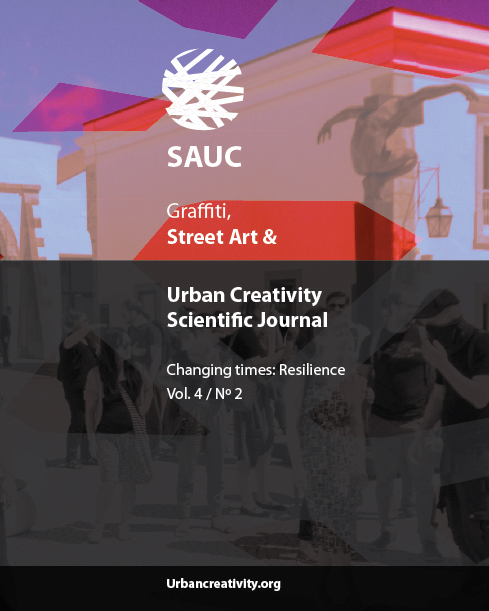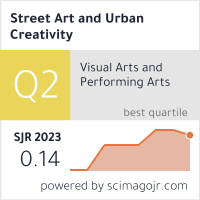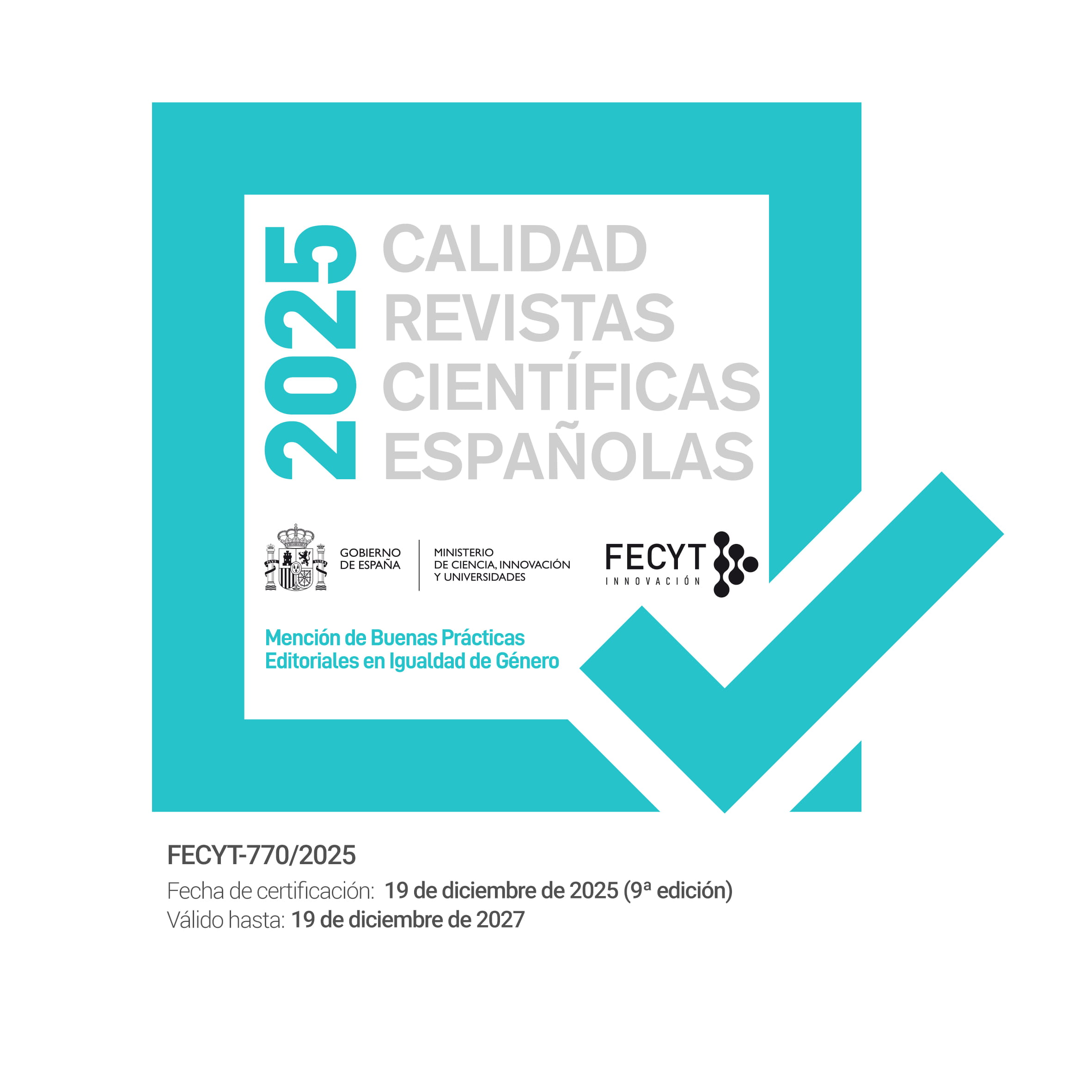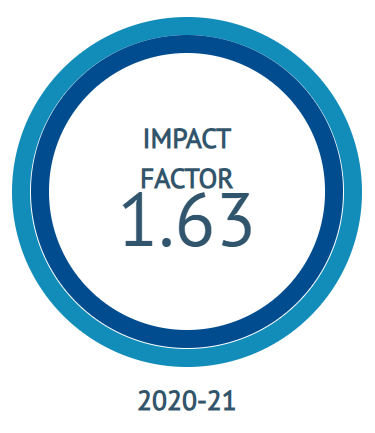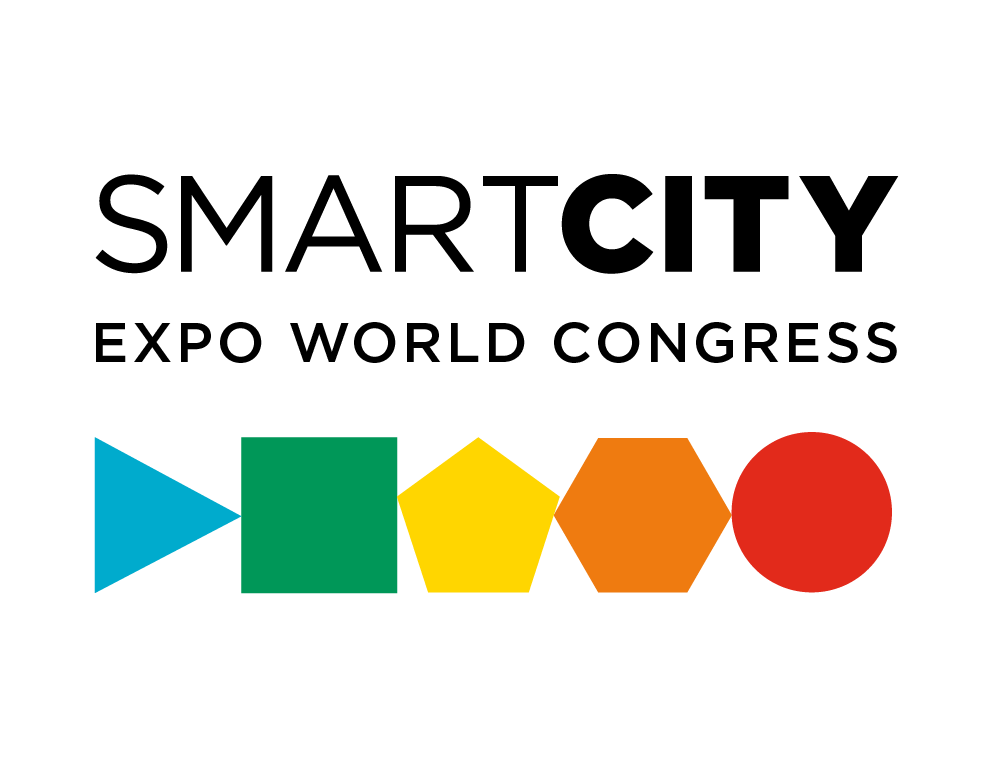Framing Poetical Expression in Urban Art:
Graffito, Performance and Poetic Objects in Public Space
DOI:
https://doi.org/10.25765/sauc.v4i2.142Palabras clave:
Poetic, poeticity, public space, translation, Banksy, Augusto de Campos, ±MaisMenos±, Camilla Watson, Helmut SeethalerResumen
This study aims to revisit some hermeneutical aspects which are essential for a theoretical approach to the interrelated notions of the poetic and poeticity in public space. I will use examples of ephemeral poetic forms such as graffito or performance, but also some examples of poetic objects from linguistic fields such as English, Portuguese, Spanish and German. These reflections on a theoretical and methodological framework for poetry and translation in public space can be subsumed under the key concept of transit-translation. I will associate four poetic expressions from four related cultural areas, with non-lyric discourse in visual, verbo-visual and performance poetry, in public space. They will be distributed along four thematic lines which I consider crucial to the current description of the phenomenon: the intermedial-intermaterial transition, the transfer from the poetic-political to the commercial, the poetic-political multimedia project, and the conflict between the poetic and the public. Drawing from different theoretical backgrounds (Heidegger, Benjamin, Rancière, Badiou, Bhabha, Butler and Spivak), I propose that these forms of non-lyric poetry might represent the advent of a new public sphere, which is no longer exclusively formed by an idealistic, romantic tradition, but rather characterised by a hermeneutic ambiguity which suggests a reconfiguration of the subject and of poetic subjectivity.
This study has been carried out with the framework of the research project, “Contemporary Poetry and Politics: Research on Contemporary Relations between Cultural Production and Sociopolitical Context” (POEPOLIT, FFI2016-77584-P, 2016-2019, Ministry of Economy and Competitively, Government of Spain) and the Strategic Programme UID/ELT/00500/2013 of the FCT, Portugal. The text has been translated from Spanish by Feidhlim Hanrahan.
Descargas
Estadísticas globales ℹ️
|
212
Visualizaciones
|
0
Descargas
|
|
212
Total
|
|
Descargas
Publicado
Cómo citar
Número
Sección
Licencia
Los autores/as que publiquen en esta revista aceptan las siguientes condiciones:
- Los autores/as conservan los derechos de autor.
- Los autores/as ceden a la revista el derecho de la primera publicación. La revista también posee los derechos de edición.
- Todos los contenidos publicados se regulan mediante una Licencia Atribución/Reconocimiento-SinDerivados 4.0 Internacional. Acceda a la versión informativa y texto legal de la licencia. En virtud de ello, se permite a terceros utilizar lo publicado siempre que mencionen la autoría del trabajo y a la primera publicación en esta revista. Si transforma el material, no podrá distribuir el trabajo modificado.
- Los autores/as pueden realizar otros acuerdos contractuales independientes y adicionales para la distribución no exclusiva de la versión del artículo publicado en esta revista (p. ej., incluirlo en un repositorio institucional o publicarlo en un libro) siempre que indiquen claramente que el trabajo se publicó por primera vez en esta revista.
- Se permite y recomienda a los autores/as a publicar su trabajo en Internet (por ejemplo en páginas institucionales o personales), una vez publicado en la revista y citando a la misma ya que puede conducir a intercambios productivos y a una mayor y más rápida difusión del trabajo publicado (vea The Effect of Open Access).

